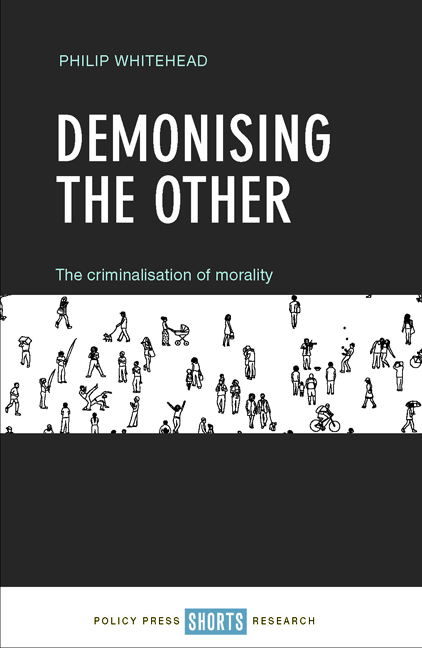Book contents
- Frontmatter
- Dedication
- Contents
- Prologue
- One Framing the other: stepping into the stream of history
- Two Criminalising the other: a criminal justice excursus
- Three Contesting the other: sinking ethical shafts
- Four Transcending the other: moral economy and universal ethics
- Concluding comment
- References
- Index
Four - Transcending the other: moral economy and universal ethics
Published online by Cambridge University Press: 08 April 2022
- Frontmatter
- Dedication
- Contents
- Prologue
- One Framing the other: stepping into the stream of history
- Two Criminalising the other: a criminal justice excursus
- Three Contesting the other: sinking ethical shafts
- Four Transcending the other: moral economy and universal ethics
- Concluding comment
- References
- Index
Summary
As we edge towards a resolution of the demonised other excavated in this monograph from a wider historical to a narrower criminal justice perspective, let us advance some further apposite reflections. Plato divided ‘reality’ into our world of everyday experience and a transcendent other world. He pondered a separate dimension of reality set apart from our transient daily lives. This separation introduced into the Western intellectual tradition the idea that our world is an imperfect copy of the transcendent realm, with the attendant danger of denigration. Plato influenced the Judaeo-Christian tradition of our world and another beyond the bright blue sky, earth and heaven, imminent and transcendent, Being and becoming. This was a world view that also contained the potential to denigrate the world in which we live. The better, more perfect and ideal were pushed in the direction of a separate order of reality, not the here and now. Next, the history of the crusades from 1095 to 1291 (Asbridge, 2010) exposed and exacerbated religious and political fault lines between Christian West and Muslim East. These crusading adventures demonised the religious other, which continues into the 21st century with such devastating consequences. The willingness to harm those who belong to different religious, cultural and ethnic traditions is as persistent as it remains obscene. It is a bloody stream of history that chokes with infamy and that we are unable to resolve. Furthermore, 200 years after the end of the fourth crusade, the Reformation and Counter-Reformation released psychotic energies of religious extremism into ‘Christian Europe’, where Catholic and Protestant tried to destroy each other in the name of the ‘true’ faith that each side of the religious divide claimed to possess. The violent destruction of the religious other was a perversion of the aforementioned Pauline vision of One humanity. As far as I know, there are no Protestants or Catholics in the New Testament canon, only an invitation to be part of One, universal humanity on earth. Finally, Kant split reality into phenomena and noumena before Hegel's correction affirmed that reality is one and not splintered into a thousand philosophical, religious and political pieces.
If we splice the illustrations from the historical record in Chapter One with criminal justice in Chapter Two, to the additional references just cited, it is easy to conclude that Homo sapiens have excelled at constructing dislocated fault lines.
- Type
- Chapter
- Information
- Demonising the OtherThe Criminalisation of Morality, pp. 81 - 96Publisher: Bristol University PressPrint publication year: 2018



